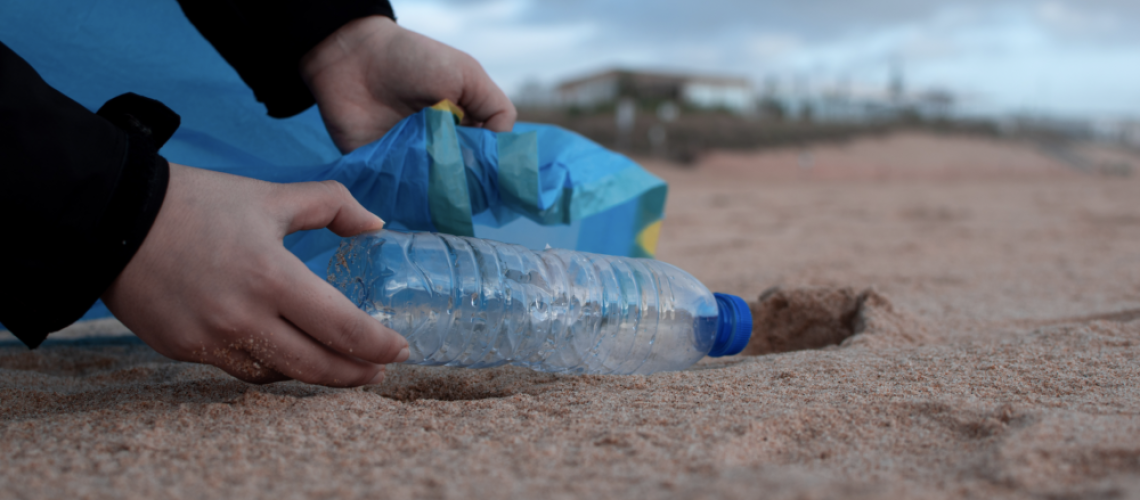My journey towards environmentalism began with individual action. Rejecting single-use plastics, reducing my meat consumption, and starting a community garden became my primary endeavors towards bringing an environmentally conscious mindset to myself, my family, and my community. While I aspired to be a “green-thumb” associated person, I would rarely venture out into the political scope of the environment. I refilled reusable water bottles, but did not ask about the laws governing the pollution levels present in our aquifers. I idealized public transportation systems as a method to minimize my carbon footprint, without questioning the carbon outputted by manufacturing processes throughout the U.S.
I stayed away from anything political. Whether it be immigration policies, healthcare reform, or climate action, I viewed myself as disconnected from federal and local governments. Yet, the same governments I ignored were passing legislation that impacted the values I believed in. I viewed climate change as a scientific matter. Climate change is still a scientific matter, but science is inherently political. Scientific sources like to present themselves as residing above the moral qualms of politics and bias. Yet, every person is affected by the institutions that govern us, and we knowingly or unknowingly exist within the space our legislators have designed for us.
Carbon pricing methods have been viewed as a possible governmental regulation to curb climate change. From my previous bystander approach, I would have sat with a compost bin, and let the government handle the complicated parts. Yet, in 2006, over $20 million were spent as campaign contributions by oil and gas industries, and unsurprisingly very little has been instituted to enact these carbon pricing methods. While the oil giant BP agreed with the Paris Climate Agreement limits on global warming, shareholder reports show the company is planning for temperature rises double what they claimed, up to a catastrophic 5℃. In the meantime, they pledge a disheartening 1.3% of their expenditures to low-carbon technologies. The “Halliburton Loophole,” named for the oilfield giant, specifically exempts fracking from the 2005 Safe Drinking Water Act, eliminating groundwater pollution measures.
Clearly, waiting for political change while I did my job protecting the environment was not working. Mainly because my job protecting the environment is fighting for that political change. Working with DAH, and turning 18, has led me to realize the importance that a vote holds, and why it is crucial to hold our elected officials to the standard we want from them. I encourage everyone to see how they can take an environmentalist approach into their own life. However, do not feel overconfident once you have accepted a green lifestyle. Your sustainable endeavors must continue to the political scope, however large, complicated, and foreign it may seem.
Chapman, B. (2017, October 27). BP and Shell planning for catastrophic 5°C global warming despite publicly backing Paris climate agreement. Independent. https://www.independent.co.uk/news/business/news/bp-shell-oil-global-warming-5-degree-paris-climate-agreement-fossil-fuels-temperature-rise-a8022511.html
Fracking: Regulatory failures and delays. (n.d.). Greenpeace. Retrieved August 23, 2020, from https://www.greenpeace.org/usa/global-warming/issues/fracking/regulatory-failures-and-delays/#:~:text=The%20major%20federal%20environmental%20laws,other%20oil%
20and%20gas%20operations.&text=The%202005%20Act%20exempted%20hydraulic,
when%20diesel%20fuel%20is%20used.
Levermann, A. (2019, July 10). Individuals can’t solve the climate crisis. Governments need to step up. The Guardian. https://www.theguardian.com/commentisfree/2019/jul/10/individuals-climate-crisis-government-planet-priority
Oil & gas: Long-term contribution trends [Fact sheet]. (2018, January 18). https://web.archive.org/web/20080421041147/http://www.opensecrets.org
/industries/indus.asp?cycle=2006&ind=E01
State and trends of carbon pricing 2016. (2016, October). World Bank Group. https://openknowledge.worldbank.org/handle/10986/25160

